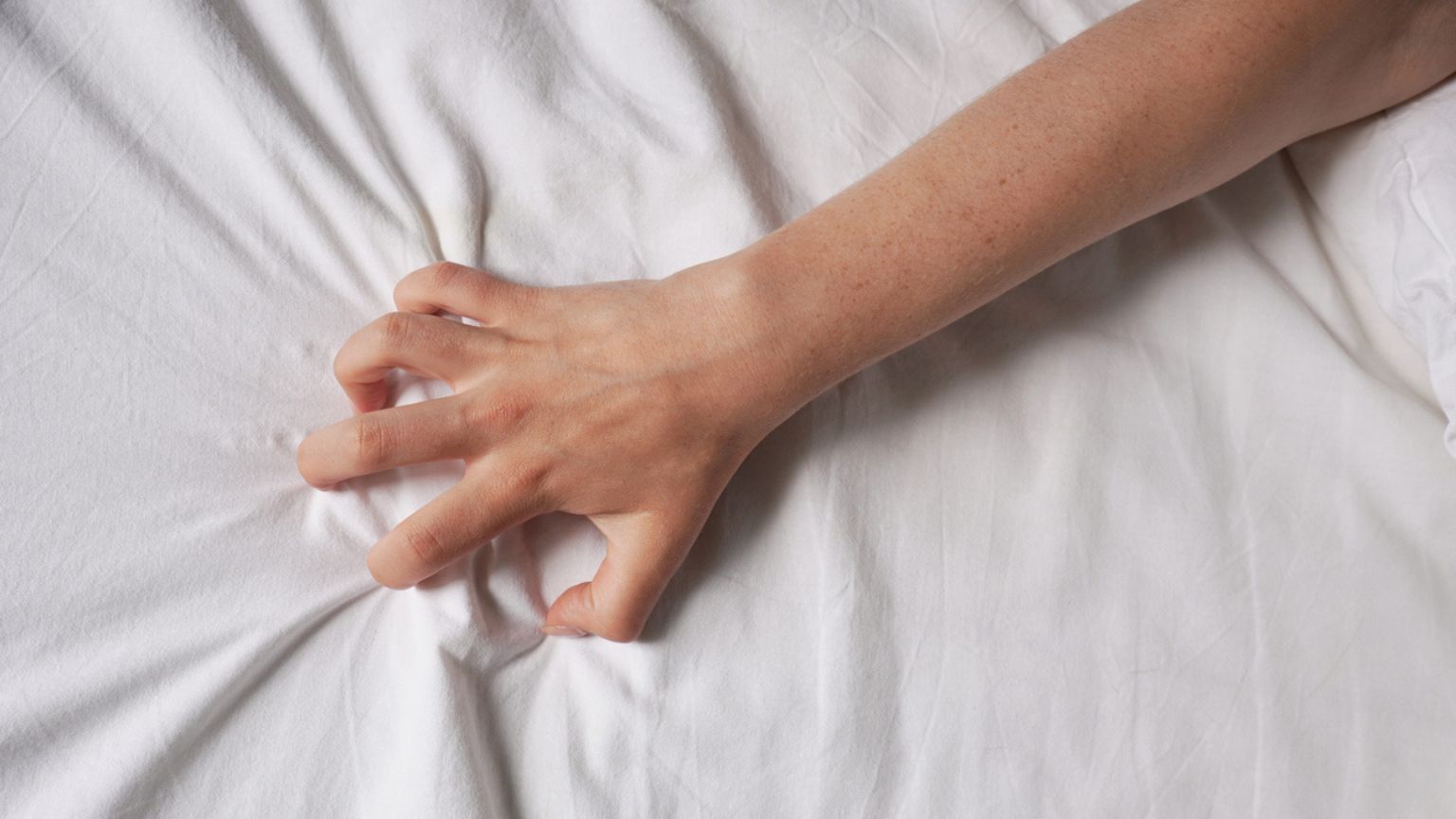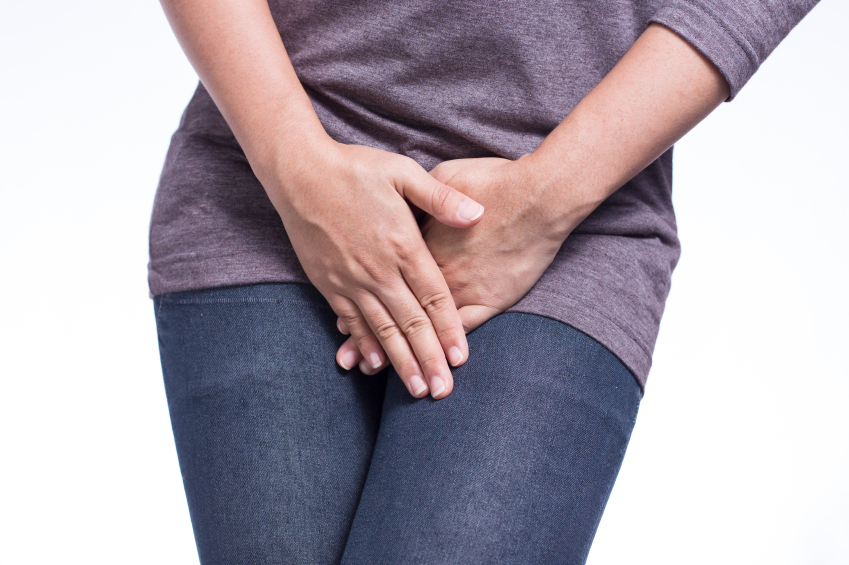Wondering why you’re experiencing painful sex? Our expert Samantha Evans, co-founder of Jo Divine reveals some of the reasons for painful penetration and what to do about them
Sexual intercourse should never hurt, but many women suffer sexual pain, chronic pelvic pain unrelated to sex or pain during sex.
Pain during sex should never be ignored unless it is consensual BDSM. Many medical professionals dismiss women as neurotic if they complain about this problem, but sex should never hurt.
It should be a pleasurable experience for both the woman and her partner. If you do experience pain during or after sexual intercourse, you should always seek medical advice as it is your body’s way of telling you something is wrong. Often your doctor can diagnose the problem and it can be easily resolved.
Many medical professionals dismiss women as neurotic if they complain about painful sex
Many women avoid sexual intercourse, which can lead to marriage and relationship breakdown. Discussing the problem with your partner is important and can help you both understand what is happening and make changes to the way in which you have sexual intercourse.
There are many reasons why sexual intercourse may be painful: some of which can be easily treated, others which may take more time to resolve.
#1 Lack of lubrication
This is a major reason as to why sex can be painful. Lack of arousal can mean less vaginal lubrication, but many women do not produce enough vaginal lubrication, including younger women.
Vaginal dryness is always linked to menopausal women, but younger women can be affected too due to the contraceptive pill, monthly hormonal changes, stress and anxiety and not being turned on by their partner.
Spending time enjoying foreplay can significantly improve your sexual pleasure
Vaginal dryness is a common condition during the menopause, but the use of lubrication can really help. Often GPs will prescribe a hormonal cream or pessary and many gynaecologists advocate using vaginal lubricants to help nourish the delicate tissues of the vagina.
#2 Lack of arousal
Most women need to be warmed up before penetrative sex, but some men rush into sex before their partner is ready. Spending time enjoying foreplay can significantly improve your sexual pleasure. There may be times when penetrative sex is not possible, but you can still have great sex without intercourse.
#3 Fast or deep penetration
Even if a woman is well lubricated and fully aroused, she may experience pain if a man inserts his penis too quickly or deeply. The vagina relaxes as a woman warms up to having sex and opens more comfortably if the penis enters slowly. Guiding your partner in at your own pace can really help avoid any pain.
Some vaginal lubricants can cause allergic reactions
Deep insertion can also be painful, especially if your partner has a large penis. Often, having sex doggy style can be painful, so try backing onto the penis at your own pace.
The same can be said when going on top. Do not allow your partner to pull you down onto their penis, but slowly lower yourself, controlling the speed and depth of insertion that is comfortable.
#4 Allergic conditions
Many women experience that familiar itching or burning sensation when they try new products, from changing their washing powder to using a new shampoo/shower gel.
Some vaginal lubricants can cause allergic reactions, so be aware of what you are putting on the delicate skin of your genitals. Latex products, such as condoms or sex toys, can produce an allergic reaction too – as well as some spermicidal creams.
#5 Vaginal Infections
Vaginal thrush, bacterial vaginosis or sexually transmitted diseases such as chlamydia, gonorrhoea and genital herpes can all cause genital pain, so seek medical advice if you think you may have one of these conditions.
They can all be easily treated with medication. Your partner may have to be treated too to prevent them passing it back to you.
#6 Vaginismus
This is a condition whereby the muscles in or around the vagina tighten, making sex painful or impossible. It can be caused by a combination of physical and psychological issues.
Physical causes can include urinary tract infections, sexually transmitted diseases, vulvodynia, skin conditions such as psoriasis or eczema, menopause, and birth trauma.
Psychological problems can be caused by disgust towards the act of sex related to a strong moral or religious upbringing or emotional or sexual trauma. With the appropriate medical intervention and counselling, this problem can be alleviated to enable penetrative sex.
caused by a combination of physical and psychological issues
Treatment usually involves pelvic floor exercises, biofeedback and use of medical dilators or a vibrator/dildo to slowly encourage the vagina to relax and open.
Pain felt inside the vagina may be caused by pelvic inflammatory disease, endometriosis (when the lining of the uterus grows outside the uterus or is thicker than normal), fibroids (growths of muscle and tissue inside the uterus) growing close to your vagina or cervix, irritable bowel syndrome and constipation.
#7 Dietary irritants
Foods containing high levels of oxalates can cause urethral irritation in women who are sensitive to them.
When too much oxalate is absorbed into the bloodstream via the gut, it combines with calcium to form sharp calcium-oxalate crystals which embed themselves into the delicate tissues anywhere in the body, causing damage and pain.
Women who have irritable bowel syndrome (IBS) absorb too much oxalate due to the poor condition of their bowel.
Sticking to a low oxalate diet for 3-6 months has been found to improve symptoms. A list of high oxalate food can be found on the Vulval Pain Society website and includes celery, coffee, rhubarb, spinach and strawberries.
#8 Vulvar Vestibulitis (VV)
This condition is characterised by burning pain felt on the vestibule or entrance of the vagina and is thought to affect 12-15 per cent of women of childbearing age.
Research has found that women who have this condition are 2-3 times more likely to have more than one chronic pain condition, including IBS, fibromyalgia (musculoskeletal pain) and interstitial cystitis (bladder pain).
Treatment for this condition includes pelvic floor exercises, biofeedback, low oxalate diet, counselling and sometimes surgery to remove the glands at the entrance of the vagina.
Many women experience hostility from their partner if they are unable to have sex which in turn increases their pain levels
Many women completely avoid any sexual interaction with their partner, but research in 2010 discovered that couples enjoyed greater sexual satisfaction when the partner had a more concerned attitude toward their partner’s condition.
By focusing on pleasurable sexual activities that do not involve penetration, couples can still enjoy the benefits of being intimate together.
#9 Conflict within a relationship
If a woman is experiencing emotional pain as a result of conflict within her relationship, pain may occur during sex. Many women experience hostility from their partner if they are unable to have sex which in turn increases their pain levels, thus creating a vicious circle. Consulting a couples’ counsellor or sex therapist may help.
If you experience pain during or after sex, seek medical advice. You can still enjoy pleasurable sexual activity without intercourse by incorporating the use of lubricant, such as YES, and slim vibrators, such as PicoBong Zizo and Slinky pinky.
At Jo Divine, we work with medical professionals who recommend the above products to patients who experience sexual pain. So do not suffer in silence, seek help and start to enjoy sex again.
More info and articles available at the Jo Divine website
Samantha Evans is co-founder and a features writer of Jo Divine, an online sex toy company. Having an extensive knowledge about sex toys, Samantha is a sexpert and enjoys creating informative articles about sexual health and pleasure.
Sam is a former nurse and also writes regular features for several leading websites including So Feminine, The Independent online,Female First and Net Doctor. Samantha is always looking at ways in which both genders can increase their sexual pleasure as well as benefiting their sexual health and well being.
Whatever your age, sex, medical condition or disability, she believes that it is always possible to find ways in which to continue enjoying sex, it just requires being more imaginative and adventurous. Follow Samantha on twitter @SamTalksSex
Like this article? Sign up to our newsletter to get more articles like this delivered straight to your inbox.



























































